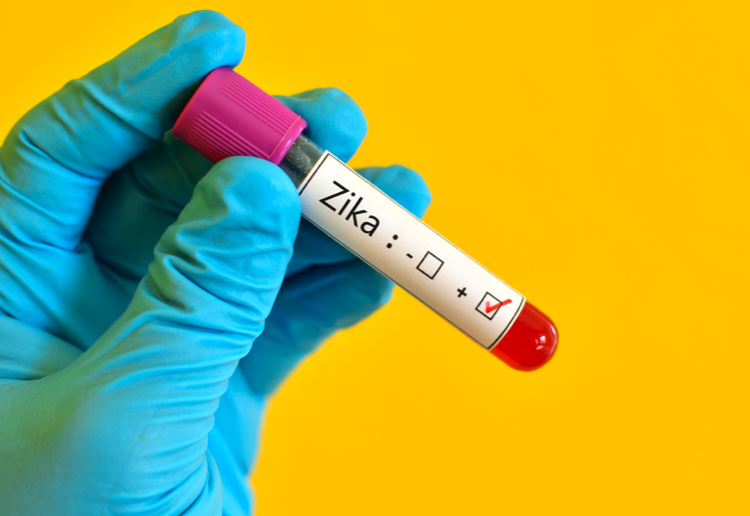Over the past few months the Zika virus situation has been rapidly evolving and in turn receiving increased attention. If you are pregnant or thinking of becoming pregnant it is important to know the facts surrounding Zika virus and what you should do.
What is Zika virus?
According to the World Health Organisation (WHO), Zika virus disease is caused by a virus transmitted by Aedes mosquitoes. Zika virus is a mild disease and most people with the virus do not have symptoms. There is currently no specific treatment or vaccine available. The best form of prevention is protection against mosquito bites.
Where is Zika virus?
The virus is known to circulate in Africa, the Americas, Asia and the Pacific (see list below for specific countries).
What are the concerns of Zika virus and pregnancy?
According to The Australia Department of Health, recent outbreaks in the Pacific and Central and South America have raised concerns that Zika might cause certain birth defects like microcephaly, if the woman gets Zika while pregnant. In April, a special report* announced in The New England Journal of Medicine suggests that sufficient evidence has now accumulated to infer a causal relationship between prenatal Zika virus infection and microcephaly and other severe brain anomalies.
What precautions can I take in relation to Zika virus and pregnancy?
If you are pregnant or hoping to become pregnant, you and your partner should avoid travel to countries of concern. If you cannot avoid travel to these areas, all travellers are urged to protect themselves by taking measures to prevent mosquito bites.
If you are pregnant and you have recently travelled to an area where there is ongoing Zika virus transmission, or where Zika virus transmission occurred at the time of your travel, you should discuss this with your doctor.
The Australian Department of Health advises, women who have travelled to a country where there is ongoing transmission of Zika virus should defer pregnancy until 4 weeks following the last day they were in a country with ongoing transmission of Zika virus. If any symptoms occur, please see your health care professional for advice.
Men who have travelled to a country where there is ongoing Zika virus transmission who have a pregnant partner should abstain from sexual activity or use condoms consistently for the duration of the pregnancy.
Men who have had a confirmed Zika virus infection and have a partner who is not pregnant should abstain from sexual activity or use condoms consistently for 3 months after all symptoms have disappeared.
What are the symptoms of Zika virus?
The infection often occurs without symptoms, only 20% of infected people will be symptomatic.
People with Zika virus disease usually have symptoms that can include mild fever, skin rashes, conjunctivitis, muscle and joint pain, malaise or headache. These symptoms normally last for 2-7 days.
Zika virus disease is usually relatively mild and requires no specific treatment. People sick with Zika virus should get plenty of rest, drink enough fluids, and treat pain and fever with common medicines. If symptoms worsen, they should seek medical care and advice. There is currently no vaccine available.
How can Zika virus be diagnosed?
Infection with Zika virus may be suspected based on symptoms and recent history (e.g. residence or travel to an area where Zika virus is known to be present). Zika virus diagnosis can only be confirmed by laboratory testing for the presence of Zika virus RNA in the blood or other body fluids, such as urine or saliva.
List of Countries with ongoing transmission of Zika
This is a rapidly evolving situation and areas where Zika virus transmission is ongoing are difficult to determine and likely to change over time.
This following list is from smartraveller.gov.au (15 June 2016) and covers the key countries of concern.
For updates please refer to www.smartraveller.gov.au : American Samoa, Argentina, Aruba, Barbados, Belize, Bolivia, Bonaire, Brazil, Colombia, Cape Verde, Costa Rica, Cuba, Curaçao, Dominica, Dominican Republic, Ecuador, El Salvador, Fiji, French Guiana, Grenada, Guadeloupe, Guatemala, Guyana, Haiti, Honduras, Jamaica, Kosrae, Marshall Islands, Martinique, Mexico, New Caledonia, Nicaragua, Panama, Papua New Guinea, Paraguay, Peru, Puerto Rico, Saint Barthelemy, Saint Lucia, Saint Martin, Sint Maarten, Saint Vincent and the Grenadines, Samoa, Suriname, Tonga, Trinidad and Tobago, US Virgin Islands, Venezuela, Vietnam.
The Zika virus is an evolving situation, so protect yourself, stay informed, be vigilant and seek advice from your GP or fertility specialist as required.
Sources:
*Sonja A. Rasmussen, M.D et al, 13 April 2016, ‘Zika Virus and Birth Defects — Reviewing the Evidence for Causality’, The New England Journal of Medicine.
smartraveller.gov.au
http://www.who.int/topics/zika/en/
http://dfat.gov.au/
For the latest updates and information on Zika virus please refer to:
· The Australian Department of Foreign Affairs and Trade: smartraveller.gov.au
· The World Health Organisation: http://www.who.int/topics/zika/en/
· The Australian Department of Health http://www.health.gov.au/
Main image source: Shutterstock
We may get commissions for purchases made using links in this post. Learn more.























-

-
-
-
mom206279 said
- 28 Jun 2017
-

-
-
-
mom94125 said
- 06 Sep 2016
-

-
-
-
Melissa89 said
- 19 Jul 2016
-

-
-
-
BellaB said
- 26 Jun 2016
-

-
-
-
mom160421 said
- 23 Jun 2016
-

-
-
-
mom112217 said
- 23 Jun 2016
-

-
-
-
mom183717 said
- 22 Jun 2016
-

-
-
-
wendy_adhofer said
- 22 Jun 2016
-

-
-
-
mom93821 said
- 22 Jun 2016
-

-
-
-
taynik46 said
- 22 Jun 2016
-

-
-
-
mom90758 said
- 22 Jun 2016
-

-
-
-
mom186025 said
- 22 Jun 2016
-

-
-
-
mom19782016 said
- 22 Jun 2016
Post a comment9:31 pm
8:47 pm
6:53 am
7:28 pm
12:58 pm
9:37 am
9:17 pm
8:24 pm
7:35 pm
-

-
-
-
mom93821 replied
- 23 Jun 2016 , 6:11 am
Reply7:02 pm
6:23 pm
5:11 pm
4:53 pm
To post a review/comment please join us or login so we can allocate your points.